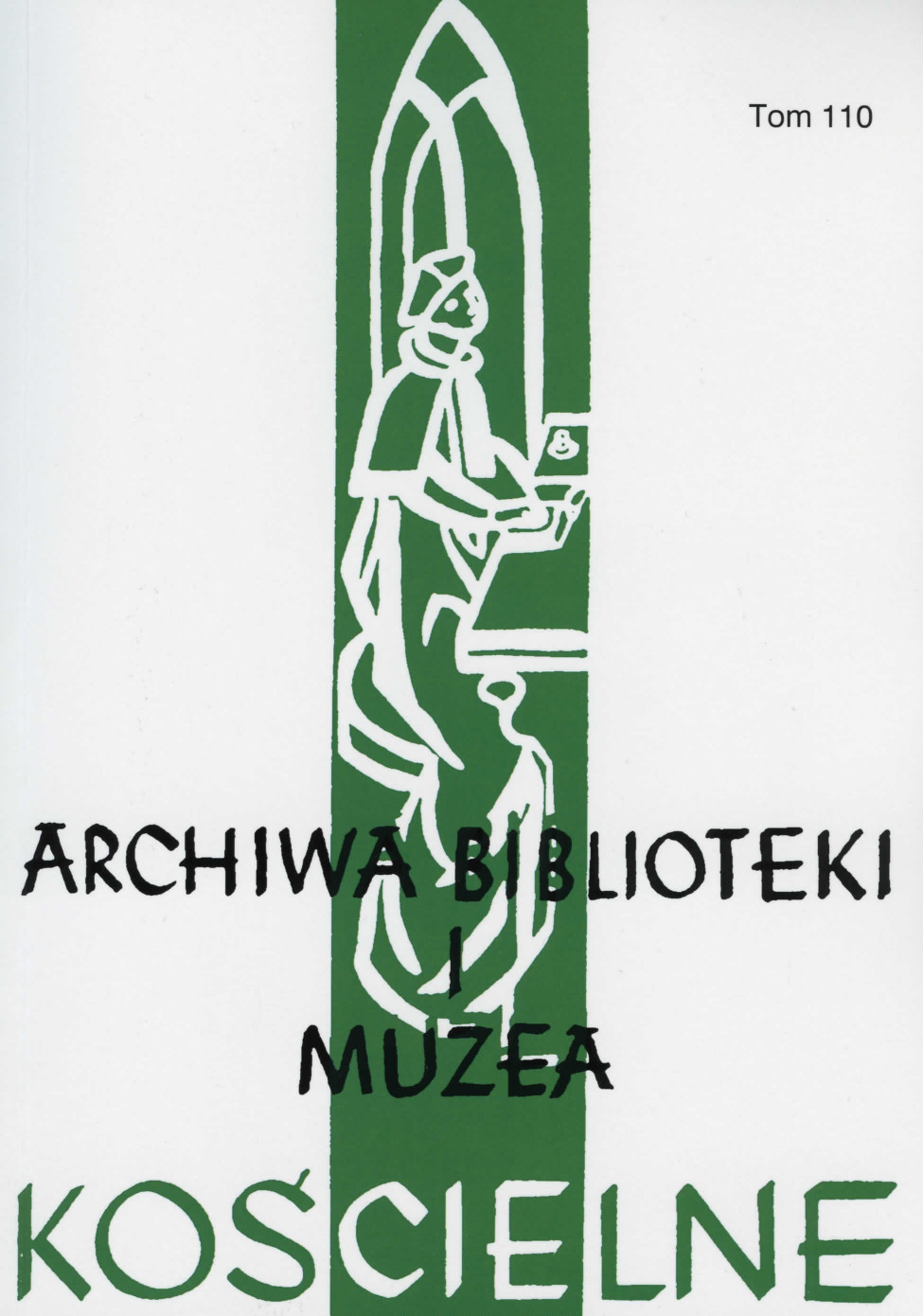Z problematyki badawczej dotyczącej dziejów prymasostwa polskiego
Research on the history of the Polish primacy
Author(s): Kazimierz ŚmigielSubject(s): Christian Theology and Religion, History, History of Religion
Published by: Katolicki Uniwersytet Lubelski Jana Pawła II - Wydział Teologii
Keywords: the primate of Poland; the Council of Constance; Mikołaj Trąba; the Archbishop of Gniezno; interrex
Summary/Abstract: The study of the history of primacy is hindered by the fact that primates’ archive created in the 15th-18th centuries (held in Łowicz) has not survived. It encompassed 163 volumes of records. In the mid-19th century, the Archbishop of Warsaw, Zygmunt Szczęsny Feliński, became interested in this archive and ordered to transfer it to the archbishops’ residence in Miodowa Street. The archival materials were burnt by the Germans during the Warsaw Uprising. These invaluable sources included not only primates’ records but also the rich correspondence with emperors, kings, popes and other eminent figures of Europe from the 15th century onwards. These materials were not used by the 19th-century researcher from Gniezno, Rev. Jan Korytkowski, who wrote two voluminous works: the five-volume biography of primates and the four-volume publication about prelates and canons of the Metropolitan Chapter in Gniezno. Currently, the greatest research problem is to explain the genesis of the Polish primacy as well as determine the exact time and circumstances of emerging this institution. The beginning of the primacy in Poland is connected with the Council of Constance (1414-1418) and Archbishop Mikołaj Trąba’s participation in it. In 1417, he received, according to J. Długosz, the primate privilege for himself and his successors.The Archbishop of Gniezno, Mikołaj Trąba, used the title ‘primate’, for the first time, during his meeting with King Władysław Jagiełło on 19 June 1418 in Pobiedziska near Gniezno. From that moment onwards, his successors used the titles of primate. The surviving stamps of Trąba, however, does not have this title. The 16th-century Primate Jan Łaski was aware of the fact that source basis for the title of primate was not plausible and that was why he did his best to obtain Leo X’s bull Pro Eccelenti Praeeminentia of July 1515. This document, however, apart from confirming the office of primate and introducing a permanent legate ‘legatus natus’ did not solve serious problems. From the turn of the 16th century onwards, primates played an important role in the development of the Polish parliamentary system. Primates took part in disputes over the form of the government. For example, Jan Łaski was for the ‘nobles’ democracy and limiting the hegemony of the magnates. During the period of an interregnum, primates served as interrex, wielding considerable political power.
Journal: Archiwa, Biblioteki i Muzea Kościelne
- Issue Year: 2018
- Issue No: 110
- Page Range: 415-420
- Page Count: 6
- Language: Polish

